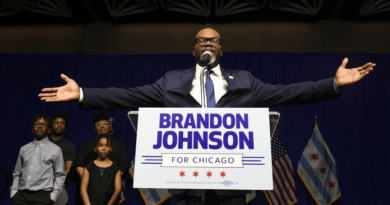Opinion | ‘Aspirational Conservatism’: A New Path for the Republican Party
These are not the only paths.
Another consistent strain of thought and action among conservatives over the past several decades argues policy should be on the side of the little guy and that our existing economic and social institutions also provide the best paths to opportunity. This type of thinking has gone by different names in the past, including “reform conservatism” and “compassionate conservativism.” In the 1990s, it animated much of the GOP’s agenda in Republican-led states and big cities, and was seen in the policies of congressional thought leaders such as Jack Kemp, Dan Coats and Paul Ryan, and the presidency of George W. Bush.
The goal was to use what is best about our market economy — job growth in dynamic sectors, innovation that raises wages and creates new opportunities — while correcting its shortcomings through a blend of grassroots civil society efforts and reforms to government programs so people are really equipped to participate in the economy.
Many on the Trumpian right, including those who claim to want the GOP to be the party of the working class, reject this approach. They assert it would allow “free-market fundamentalists” to rule the party. That’s simply not the case. Proponents of this philosophy believe that a market economy provides the best path up for those lower on the economic ladder — but also that government has an obligation to remove barriers as they strive to move up and provide a variety of supports to assist them as they do.
It’s an “aspirational conservatism,” as we call it, that prioritizes upward mobility for ordinary people. Compassionate conservatism and reform conservatism focused largely on poverty, work and families. Aspirational conservatism could build on those previous iterations by addressing what today are the most important issues felt by middle- and working-class families alike. And it could guide the Republican Party in the months and years to come, delivering both political victory and a real governing agenda.
In numerous surveys in recent years, voters across the political and socioeconomic spectrum have expressed an interest in leadership that puts job opportunity, housing affordability, public safety and good schools front and center. This creates an opportunity for conservatives who want neither anti-government ideology nor hyperactive culture warring.
Republicans should focus on three sets of issues.
First, the GOP should create a clear set of policy objectives to support opportunity, individual initiative and hope. The party should reject simplistic, binary choices on questions of government assistance and instead advocate for public policies that boost the twin themes of freedom and dignity.
Conservatives should support individual initiative while also updating safety net programs to help individuals and families when they falter. An aspirational agenda would focus on incentives for states and localities to lower the cost of housing by increasing supply, provide new skills to workers in dynamic sectors, help lower the costs of caring for young children, and support a new round of common-sense school reforms to meet heightened parental demand for education alternatives after the policy failures of the pandemic. These issues — housing, job opportunities, and quality care and schooling for children — are at the heart of most people’s vision for the American Dream.
Second, aspirational conservatives should be the voice of reason on crime and justice. Americans of all stripes have rated public safety among the most important issues, and yet elected leaders have mostly avoided providing solutions.
Republicans should ensure police are well-trained and have the resources and ability to prosecute crimes, but they should do more. They should support reforms that elevate trust through community policing and prevention strategies, including programs that help at-risk youth find purpose in school and work. A coherent policy incorporates all of these principles in order to ensure that trust in police rises while crime decreases and, in the words of sociologist James Q. Wilson, the benefits of working exceed the benefits from stealing.
Third, aspirational conservatives should break from a growing preference on the right for wielding federal power in pursuit of moral goals.
Conservatives should return to a robust view of federalism whenever possible as the best guarantee of diverse views around the country — calling on majorities to respect the minority opinions in their communities and calling out efforts by the left when it does the opposite. Federalism is essential to preserving personal freedom and honoring the independence of families, two values that most Americans consider essential to achieving the American Dream. Majorities also think the federal government has too much power, and heartland voters resent elites who impose their values on them. Even when it comes to socially conservative values with which most Republicans agree, using federal power to impose them on states and communities undermines fundamental conservative principles and risks a backlash from voters.
With control of just one house of Congress, Republicans don’t have the power to implement this agenda yet. But they can embrace this approach on Capitol Hill and on the 2024 presidential campaign trail. As more and more voters tire of Trumpian bombast and the culture wars driving our politics, aspirational conservatives have a chance to show they are on the side of the majority of Americans who care most about a good quality of life, ample opportunity and a government that works for them. That’s not just good policy — it’s good politics.




